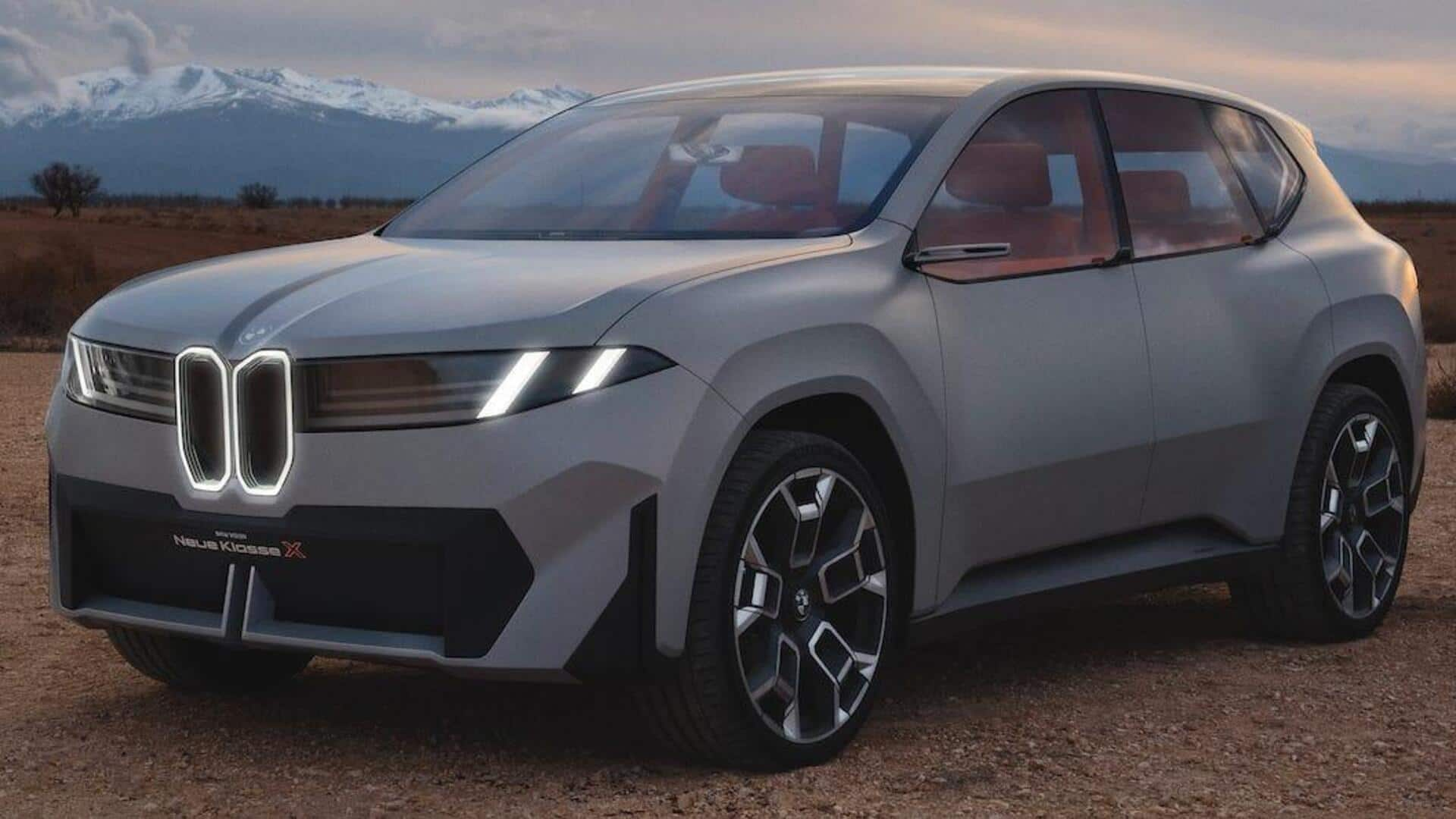
All-electric iX3 will be BMW's most sustainable car ever—Here's why
What's the story
BMW's upcoming electric vehicle (EV), the iX3, will be its most sustainable production car to date. The model will debut in Europe later this year and North America in 2026. It is built on a new platform called Neue Klasse, an homage to the original Neue Klasse of the 1960s that helped define BMW's image for decades.
Innovative features
It will use 740kg of recycled material
The iX3 borrows some design elements from the 2021 i Vision Circular concept. It also employs construction techniques like heavy use of mono materials, which makes recycling easier at the end of a car's life cycle. The vehicle also uses secondary materials extensively—about 740kg of recycled material is used in total. This includes half of all lithium, cobalt, and nickel in battery pack; 70% aluminium in alloy wheels; and 80% aluminium in wheel carriers.
Sustainable materials
Frunk made from plastic containing recycled fishing nets
The frunk of the iX3 is made from plastic containing 30% recycled fishing nets. However, it is worth noting that the US market may not get the Econeer trim, which uses a seat fabric made entirely from recycled PET bottles. Instead, an eco-vinyl option is expected to be offered in its place.
Factory efficiency
The factory in Hungary runs entirely on renewable energy
The factory in Debrecen, Hungary that produces the iX3 runs entirely on renewable energy. It generates two-thirds the amount of CO2 as one of BMW's established factories. The battery pack for this model uses an all-new BMW cylindrical cell with a 42% smaller carbon footprint per kWh than prismatic cells used in BMW's current fifth-generation EVs.
Sustainability metrics
How does the iX3 fare against ICE vehicles?
BMW estimates that the iX3 can reach its break-even point with an internal combustion engine (ICE) vehicle within just a year. If charged with entirely renewable electricity, it matches up with an ICE vehicle in 17,500km. The lifetime carbon footprint of the iX3 is expected to be 23 tons (or 14.6 tons using renewable energy only). In comparison, a conventionally powered BMW X3 crossover would have a footprint of about 53 tons.